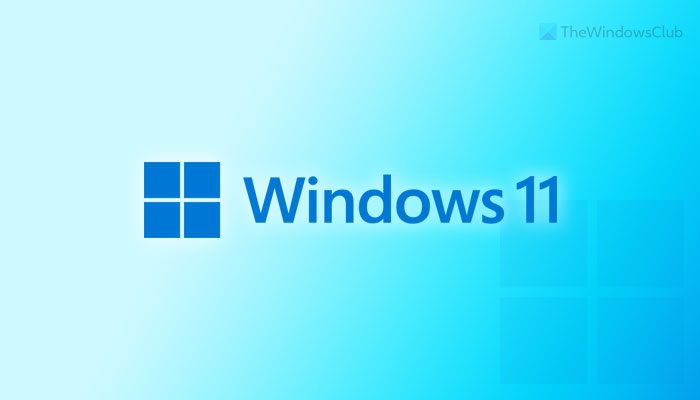Different Windows editions have had different upper maximum RAM limits. 64-bit Windows support different amounts of memory as an SKU differentiating feature, with the low end being 512MB for Windows XP Starter to 128GB for Windows Vista Ultimate and 192GB for Windows 7 Ultimate and 1 GB for Windows 10 and Windows 11.

All 32-bit Windows client SKUs, however, including Windows Vista, Windows XP and Windows 2000 Professional, support a maximum of 4GB of physical memory. 4GB is the highest physical address accessible with the standard x86 memory management mode. Hardware Specifications for Windows 7 lays down the minimum memory (RAM) requirements.
Read: Difference between 64-bit and 32-bit Windows.
Maximum memory (RAM) limits
So, while the maximum RAM limit for 32-bit Windows 7 / 8 editions is 4 GB when it comes to the 64-bit editions, the amount of memory that the OS can address depends on which edition you are running.
The computers with 32-bit Windows OS use a /3 GB Switch or 4-gigabyte tuning (4GT) to manage the memory required by applications. It is the technology that increases the virtual address space available to the applications to a maximum of 3 GB and reduces the amount available to the system to between 1 and 2 GB. In computer systems with 64-bit Windows operating systems, there is no need for such technology. This is because 64-bit computer systems can handle up to 16 exabytes of memory.
Memory limits for 32-bit computer systems also depend on the Physical Address Extension (PAE). PAE is a feature of processor that enables x86 processors to use more than 4 GB of physical memory on capable Windows versions. With the use of this technology, certain 32-bit versions of Windows Server running on x86-based systems can access up to 64 GB or 128 GB of physical memory. PAE is supported only on computer systems with 32-bit processors.
Maximum Memory limit for different versions of Windows 11/10
The maximum Memory limit for the different versions of Windows 11/10 are:
- Windows 11/10 Home: 128 GB
- Windows 11/10 Pro: 2 TB
- Windows 11/10 Pro for Workstations: 6 TB
- Windows 11/10 Education: 2 TB
- Windows 11/10 Enterprise: 6 TB
The above-mentioned maximum physical memory limits are the same for different versions of Windows 11 with ARM64 architecture.
Here are the upper RAM limits for the different editions of Windows 7 64-bit:
- Starter: 2GB
- Home Basic: 8GB
- Home Premium: 16GB
- Professional: 192GB
- Enterprise: 192GB
- Ultimate: 192GB
These limits are similar to those for Windows Vista editions, except that Vista Enterprise and Vista Ultimate have had their upper limits raised from 128GB to 192 GB.
Windows 8 and Windows 8.1, 64-bit have different memory limits depending on the edition.
- Windows 8: 128GB
- Windows 8 Professional: 512GB
- Windows 8 Enterprise: 512GB.
For Windows Server 2008 R2 Enterprise edition, the limit could extend to even 2 TB. Whereas, for Windows Server 2012 Datacenter and Windows Server 2016 Datacenter, the maximum physical memory limits can extend to 4 TB and 24 TB respectively.
How to check the maximum RAM capacity of a computer
Upgrading a system’s hardware definitely boosts its performance. Computer systems with low RAM lag in performance as compared to computer systems with more RAM. You can improve your computer’s performance by upgrading the hardware, like increasing physical memory, installing an SSD, etc.
Before purchasing RAM, it is important to know how much RAM is supported by your computer hardware. The maximum RAM that you can add to your PC depends on the following:
- Operating system’s architecture
- CPU
- Motherboard
To know the maximum upgradable memory limit of your system, you have to visit your system manufacturer’s official website and view your device’s specifications.
Will Windows 11 use more RAM?
There is no official statement regarding the usage of RAM by Windows 11. You can install Windows 11 on 4GB of RAM without any problem. Talking about Memory consumption, you cannot say if Windows 11 consumes more or less RAM than Windows 10 or any other older version. It entirely depends on the number and weight of the apps and the settings you are using.
Can 64-bit run 32 GB RAM?
Computer systems with 64-bit Windows OS architecture can have different physical memory limits. These physical memory limits depend on the version of the Windows operating system you have. For example, the maximum physical memory limit for Windows 11/10 Home editions running on computer systems with 64-bit architecture is 128 GB.
I hope this helps.
Further reading:
Leave a Reply